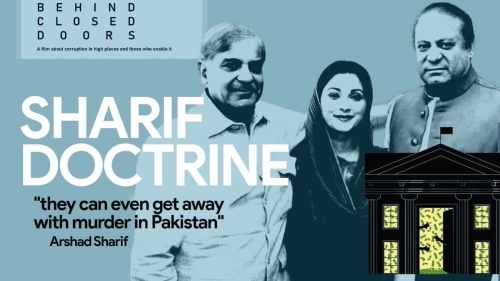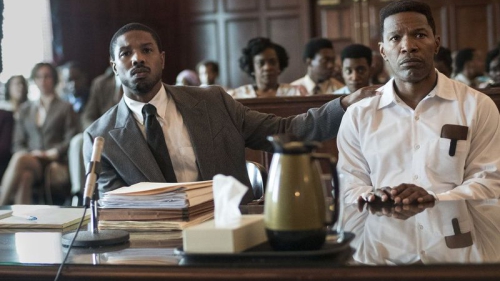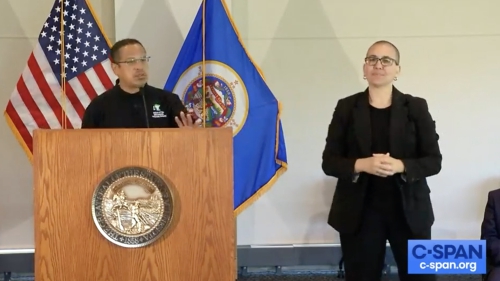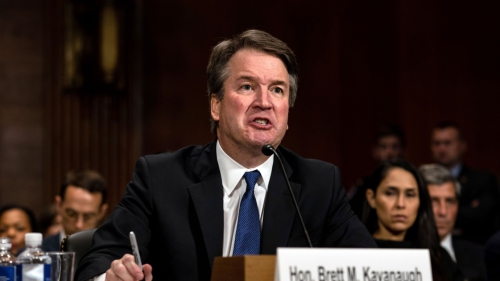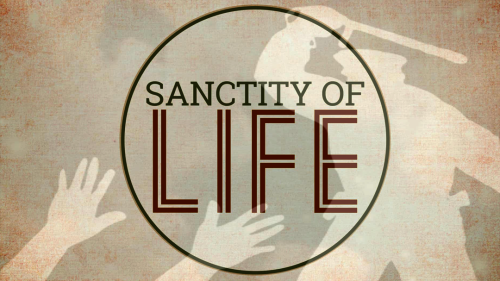Imam Jamil Al-Amin

In October 2001, a well-respected Muslim scholar from Georgia, Imam Jamil Al-Amin, will be put on trial for the shooting of two sheriff's deputies. He could face the death penalty for a crime of which he says he is "absolutely innocent." In order for him to receive a fair trial, he needs financial and moral support from all sectors of the community.
Then known as H. Rap Brown, Imam Jamil played an important role in the Black Power movement of the 60s before he converted to Islam and changed his name to Jamil Abdullah Al-Amin. To understand why Imam Jamil is in the position he is in today, it is crucial that we understand the person that Imam Jamil was before he converted to Islam and what he has accomplished since.
The Current Case
On the night of Eid Al-Adha, March 16, 2000, two Atlanta deputies were shot by an unknown assailant while trying to serve an arrest warrant for Imam Jamil Al-Amin. Deputy Ricky Kinchen was shot and killed, while Deputy Aldranon English was shot and wounded. A warrant was issued for Imam Jamil's arrest after he had missed a January court appearance in connection with other small, unrelated charges.
A grand jury in Atlanta indicted Imam Jamil, a presiding officer of the national committee of the Shura Council of North America and Imam of the West End Neighborhood of Atlanta, for one count of murder, four counts of felony murder, two counts of aggravated assault, and six other lesser charges.
Both deputies swore the night of the incident that they had wounded their assailant. "I shot him. I know I shot him," said Ricky Kinchen to his fellow deputies before he died. There was a trace of blood found at the scene. One officer followed the trail of blood to an abandoned house. Yet, when they arrested Imam Jamil he had no wounds on his body. Furthermore, the blood has now suddenly disappeared.
According to Ed Brown, Imam Jamil's brother, "They first said there was blood to get a search warrant, and, after they found out he wasn't injured, all of a sudden the blood isn't important. All of a sudden it's vanished. Nobody can remember anything about it. It's a mystery." Interestingly enough, the night of the shooting, police received reports of a wounded man trying to flag down a ride five blocks away.
Two vehicles had also been shot that night, however, one of the cars has been repaired and the other has been impounded, sold, and can no longer be found. These vehicles could have proven to be crucial pieces of evidence in determining the location of the shooter.
When Imam Jamil was arrested, the two weapons used in the shooting were allegedly found "near" him, according to media reports. Upon further investigation it seems that the guns were actually 1.3 miles away from where he was arrested. One gun was found the day of the arrest, while the other was found the next day. His fingerprints are not on the guns, and the person who was traced to be the owner of the guns is in no way connected to the Imam.
Three weeks after the shooting, a man bearing a striking resemblance to Imam Jamil, Otis Jackson, confessed to the shootings. However, he later recanted his confession, saying, "...I love Jamil but I did not do any thing I killed no one and Jamil killed no one. I'm sorry for making FBI feel as if I did this."
History of Imam Jamil
When reading about Imam Jamil Abdullah Al-Amin, it is near impossible to avoid references to his past militancy. Although, Islam forgives one's past prior to converting, the Atlanta police, the Department of Justice, the FBI and the mainstream media have not.
Rap Brown was a black civil rights advocate during the 1960s and 1970s. He eventually became chairman of the Student Non-Violent Coordination Committee (SNCC) and later honorary Minister of Justice of the Black Panther Party for five months.
Like all civil rights leaders of the era, Imam Jamil has a deep history with the FBI. The FBI used a program commonly known as COINTELPRO, Counter Intelligence Program, to, in the words of former FBI director J. Edgar Hoover, "expose, disrupt, misdirect, discredit, or otherwise neutralize" groups whose views the FBI considered threatening to the status quo. Under this definition the FBI used COINTELPRO to target Martin Luther King Jr., Stokely Carmichael, Malcolm X, Huey Newton, and H. Rap Brown among others.
In the 1970s H. Rap Brown was imprisoned for his role in a robbery. During this time H. Rap Brown found Islam and became Jamil Abdullah al-Amin. In 1976, after finishing his prison sentence, he made Hajj and settled in Atlanta, Georgia's West End. While in the West End he established the Community Mosque of Atlanta. After a life of anti-establishment activism, he found the answer to his quest for social revolution in Islam. In the 1980's Imam Jamil and his community were involved in cleaning out their area of drugs and prostitution, similar to Brooklyn, New York's Imam Siraj Wahhaj's campaign in 1988.
In August of 1995, H. Rap Brown's history caught up with Imam Jamil. Imam Jamil was arrested in connection with a shooting of a young man in his neighborhood. During this time, Muslim organizations stood by Imam Jamil and urged the Department of Justice to fully investigate the incident so that he could receive a just trial. Imam Jamil was charged with aggravated assault after the man claimed that Imam Jamil shot him. Later, however, the same man who accused Al-Amin withdrew his statement, saying he was pressured by authorities to identify Imam Jamil as the assailant. Both The Atlanta Journal and Constitution and The New York Times quote the victim as saying he repeatedly insisted to the police that he did not see who shot him, he also said that he was threatened with legal charges if he did not agree to identify the Imam as the person who shot him. In what police described as a "routine aggravated assault" agents of the FBI, the FBI's Domestic Counterterrorism Task Force, and the Bureau of Alcohol, Tobacco and Firearms involved. This was rather strange for something described by the police themselves as "routine." Thanks to Allah Most High, and the active support of Muslim organizations, Imam Jamil was acquitted of any charges.
What You Can Do
Not since the murder of El-Hajj Malik Shabazz (Malcolm X) and the trial of his assassins has one case had such far-reaching implications for the future of Islam in America. Altaf Husain, President of the Muslim Students Association has best put it: "At times when it was not politically correct to openly challenge injustice and oppression, Imam Jamil Abdullah Al-Amin stood tall and firm, and spoke a word of truth in the face of the unjust and the oppressors. Today, it is our turn to stand tall and firm, and show our unwavering support for the innocence of Imam Jamil Al-Amin. For Imam Jamil is not the only one on trial, you and I, and all those who fight injustice and oppression are on trial"
Muslim organizations have joined forces to once again stand firm with Imam Jamil. Currently Imam Jamil may be put to death if we, the Muslim community, cannot raise enough money for him to receive a fair trial. In order for Imam Jamil to have a fair and just trial, the Muslim community needs to rise up and raise $500,000 before his trial begins. The money will cover expenses for four expert lawyers, expert witnesses, ballistic and DNA tests, and hours of research are needed to match the state's efforts. The federal government is diligently working to build their case; we need to work harder to help save Imam Jamil.
THINGS YOU CAN DO TO HELP
- Make Du'a.
- Organize community masjids to have khutbahs for Imam Al-Amin, which will help bring about much needed awareness.
- Muslim Student Associations should have teach-ins and rallies on their campuses.
- Donate to:
The Justice Fund
P.O. Box 93963
Atlanta, GA 30377






